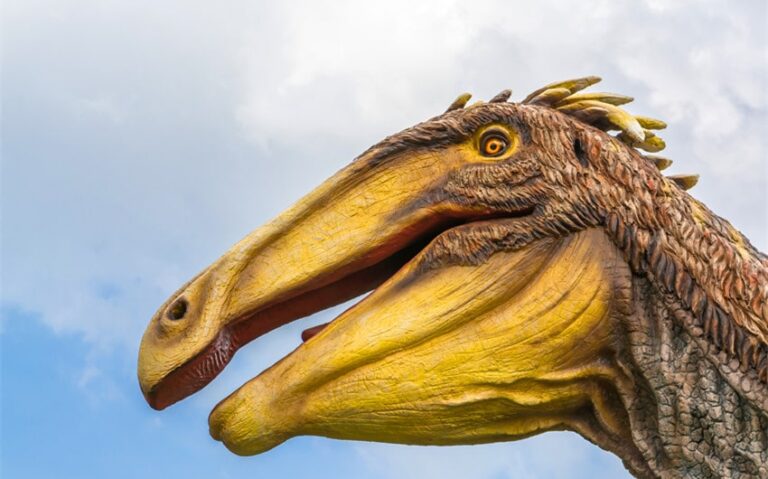Deimos Name Meaning And Its Connection To Fear And War
Names often carry deep historical and cultural significance, and Deimos is no exception. With roots in Greek mythology, this name is associated with power, fear, and battle. It has also found a place in astronomy, literature, and pop culture, making it a name with both ancient and modern relevance. Whether you’ve come across it in mythology or as one of Mars’s moons, its meaning reflects themes of strength and intensity.
Understanding Deimos name meaning reveals a fascinating history tied to gods, war, and the cosmos—making it a name that continues to captivate people across different generations.
Greek Mythological Origins of Deimos
The name Deimos originates from Greek mythology, where it represents one of the many deities connected to war and chaos. In mythology, Deimos is the personification of terror, dread, and fear, especially in the context of battle. He is the son of Ares, the god of war, and Aphrodite, the goddess of love, making him a divine figure closely associated with both destruction and power.
Deimos had a twin brother, Phobos, who personified panic and fear. Together, they were depicted as companions to Ares, often riding alongside their father into battle, spreading fear among enemies. In Greek literature, Deimos and Phobos were said to strike terror into the hearts of warriors, causing them to flee in horror before the battle even began.
Their influence is mentioned in Homer’s Iliad, where they accompany Ares on the battlefield, instilling dread among opposing armies. Unlike major Olympian gods, Deimos was not widely worshiped but was instead seen as a force of nature—an inevitable part of war and combat. He did not have a distinct temple or cult but was invoked in prayers and battle preparations by warriors who wished to overcome their fears.
The name Deimos, therefore, is deeply rooted in the idea of uncontrollable fear, war, and destruction. It carries an intense, almost intimidating aura, making it a powerful name in both mythology and modern usage.

Image source: Pinterest
Meaning of the Name Deimos
The name Deimos comes from the Greek word “Δεῖμος” (Deimos), which directly translates to “dread” or “terror.” In ancient Greece, the word was commonly used to describe the feeling of overwhelming fear, particularly in combat. Unlike ordinary fear, which can be overcome, Deimos represents an all-consuming sense of terror that paralyzes and dominates one’s mind.
In its linguistic roots, the word Deimos is derived from the Greek verb δειμαίνω (deimaino), meaning “to frighten” or “to cause terror.” This further reinforces the idea that Deimos is not just a name but an embodiment of fear itself.
Why Deimos Is a Powerful Name
Due to its meaning, Deimos is often associated with strength, dominance, and an intense presence. The name carries a sense of mystery and raw energy, making it appealing to those who appreciate names with a strong mythological background.
It is also a name that commands attention, evoking images of warriors, gods, and cosmic forces. Despite its association with fear, Deimos does not necessarily symbolize weakness. Instead, it represents a force that must be reckoned with, much like the powerful emotions of dread and fear in battle.
Deimos in Astronomy: A Moon of Mars
Beyond mythology, Deimos has also found a place in astronomy, solidifying its presence in both history and science. In 1877, American astronomer Asaph Hall discovered two small moons orbiting Mars, naming them Deimos and Phobos after the twin sons of Ares.
Why Is One of Mars’s Moons Named Deimos?
Since Mars is named after the Roman counterpart of Ares, it made sense to name its moons after Ares’ companions—Deimos (terror) and Phobos (panic). These two celestial bodies represent the emotions experienced on the battlefield, reinforcing the warlike symbolism of the planet Mars.
Characteristics of Deimos, the Moon
- Size: Deimos is the smaller of Mars’s two moons, measuring only about 12.4 kilometers (7.7 miles) in diameter.
- Shape: Unlike Earth’s moon, Deimos is irregularly shaped, resembling an asteroid more than a spherical body.
- Orbit: Deimos orbits Mars at a distance of 23,460 km (14,580 miles) and takes approximately 30.3 hours to complete one orbit.
- Surface: Its surface is covered in craters, dust, and loose rock, giving it a rugged and aged appearance.
Despite being the smaller of Mars’s moons, Deimos plays a crucial role in scientific studies of the Martian system. Its name continues to carry the legacy of Greek mythology into the modern space age, demonstrating how ancient stories still influence scientific discoveries today.
Deimos in Literature, Pop Culture, and Modern Usage
1. Deimos in Classical and Modern Literature
The influence of Deimos extends beyond mythology and astronomy into literature and storytelling. Writers throughout history have used Deimos as a symbol of fear and impending doom, reinforcing its association with terror.
- Ancient Greek texts, like Homer’s Iliad, mention Deimos as a figure who spreads fear among warriors.
- In modern literature, the name Deimos is often used for villains, dark gods, or powerful entities that embody destruction and fear.
For instance, in science fiction and fantasy, Deimos has been used as the name of fictional planets, supernatural beings, and otherworldly forces. Writers often choose the name to evoke a sense of danger, mystery, or an apocalyptic theme.
2. Deimos in Video Games and Movies
Deimos has appeared in numerous video games, movies, and TV series, further solidifying its reputation as a name associated with fear and power. Some notable examples include:
- God of War Series – Deimos appears as the younger brother of Kratos, symbolizing rage and loss.
- Doom (Video Game) – The Martian moon Deimos serves as the setting for the original game’s horror-filled missions.
- DC Comics Universe – Characters named Deimos appear as villains with connections to dark magic and destruction.
The presence of Deimos in these forms of media continues to reinforce its intimidating and legendary status, making it a favorite for creators looking to convey power and fear.
3. The Name Deimos in Modern Naming Trends
Though Deimos is not a common personal name, it is occasionally chosen by parents who appreciate mythology and strong, unique names. It has also been used in fantasy and gothic subcultures, where names with intense meanings hold special significance.
The name is also popular among writers, artists, and gamers, who use Deimos as a pseudonym, character name, or creative alias due to its dramatic and powerful nature.
Symbolism and Personality Traits Associated with Deimos
The name Deimos carries a sense of power, fear, and intensity, rooted in its mythological, linguistic, and astronomical associations. Whether viewed through the lens of Greek mythology, literature, or modern culture, it has remained a name that evokes strength, mystery, and an almost supernatural presence. People drawn to the name Deimos often find themselves resonating with qualities that reflect fearlessness, leadership, and a connection to the unknown. Below are some key symbolic meanings and personality traits associated with this powerful name.
1. Strength and Fearlessness
One of the most defining traits of the name Deimos is its association with strength and an unshakable presence. In mythology, Deimos was not one to experience fear—he was fear itself, spreading terror among enemies and amplifying the chaos of war. This symbolism suggests that those with the name Deimos, or those who identify with it, might possess a strong-willed, resilient, and unyielding nature. They are not easily intimidated and may even thrive in high-pressure or challenging environments, where others might falter.
People connected to the name Deimos are often seen as determined individuals who push through obstacles with an almost unstoppable energy. Their strength is not only physical but also mental and emotional, allowing them to confront difficulties head-on. They are the type to take control of situations, making them natural leaders, warriors, or pioneers in their fields. Their fearlessness allows them to take risks that others might shy away from, ensuring they make an impact wherever they go.
2. Mystery and Darkness
Due to its mythological and astronomical connections, Deimos is also a name that exudes mystery and intrigue. Just as the moon Deimos orbits Mars in darkness, the name carries a sense of the unknown, the supernatural, or even a slightly ominous aura. Those who relate to the name often have a deep, introspective nature, keeping much of their thoughts and emotions concealed. They might not be quick to reveal their true selves to others, which can make them appear enigmatic or distant.
This air of mystery can be both attractive and intimidating, as people with this name or persona may have a commanding yet elusive presence. Their ability to observe, analyze, and understand situations from a deeper level allows them to excel in fields that require intellect, strategy, and emotional control. However, their mysterious nature can sometimes make it difficult for others to fully understand them, leading to an aura of intrigue and complexity that only a few can truly decode.
3. Leadership and Intensity
The historical and mythological connections of the name Deimos also suggest strong leadership qualities. As the son of Ares, the god of war, Deimos was seen as a force that influenced warriors and battle outcomes. This reinforces the idea that people who resonate with the name Deimos often have a commanding presence, capable of leading others through difficult times. They have a natural intensity, and when they set their sights on a goal, they pursue it with unwavering focus and determination.
However, this intensity can sometimes be overwhelming for those who do not share the same level of ambition or drive. While Deimos represents leadership, it can also symbolize the burden of responsibility and power. Those with this name or its qualities must learn to balance their intensity, ensuring that their leadership remains inspiring rather than intimidating. When harnessed correctly, this energy allows them to achieve great things while motivating others to follow their lead.
4. Fear and Its Dual Nature
The most fascinating aspect of the name Deimos is its direct connection to fear itself. Unlike many names that symbolize courage, Deimos does not ignore fear—it embodies it. This unique quality makes it a name that represents both the force that spreads fear and the ability to control and overcome it. In modern psychology, fear is a powerful motivator, capable of either hindering progress or driving individuals to action. Those who resonate with the name Deimos may have a deep understanding of fear, using it to their advantage rather than letting it paralyze them.
For some, this means developing a warrior mentality, pushing through personal fears to achieve success. For others, it might manifest as a fascination with the unknown, leading them to careers in psychology, philosophy, horror literature, or even space exploration—all fields that explore fear and mystery. By embracing the dual nature of fear, those connected to Deimos can transform it into a source of power and wisdom, rather than a weakness.
5. Cosmic and Celestial Symbolism
Beyond mythology, the name Deimos carries a strong cosmic presence due to its association with the moon of Mars. Celestial names often suggest greatness, vastness, and an unbreakable connection to the universe, and Deimos is no exception. People associated with this name may feel drawn to the stars, space, and the mysteries of the cosmos, embodying a mindset that is expansive, limitless, and forward-thinking.
Individuals with this name might also have a sense of destiny or a grand vision for their lives, always seeking higher meaning and greater purpose. They may feel restless in ordinary routines, constantly looking for new challenges, discoveries, and intellectual pursuits. This cosmic symbolism gives Deimos an added layer of depth and intrigue, making it a name that represents both personal power and a connection to something far greater than oneself.
Featured image source: Pinterest







